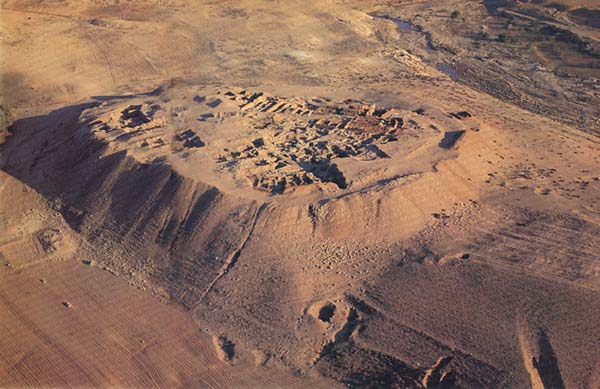
(2-3 Minute Read)
Deuteronomy 21:10-25:19
Ki Tetse is a Hebrew phrase meaning “when you go out” to battle, and the Torah portion begins with the proper treatment of prisoners of war. Next, the rights of the firstborn son in a family of multiple wives is established, regardless of the father’s favoritism. The rebellious son who refuses to heed discipline is discussed, as well as the instruction to immediately remove the body of a person executed by hanging. The Torah reiterates that all lost property, including livestock and garments, should be assisted and/or returned. The commandment of shooing away the mother bird from a nest before taking or disposing of her eggs is mentioned, as well as building a railing for a rooftop or balcony. Other instructions are reiterated, including the wearing tzitzit fringes, not mixing wool and linen, and processes relating to tokens of virginity, infidelity, abuse, and divorce. The Torah provides additional details regarding mamzerim as well as certain nations, such as Moab and Ammon, “entering the congregation” of the Most High. Other commandments are noted, including the prosecution of kidnappers, issuing loans without interest, supporting widows and other needy members of the community, and not punishing the children for the sins of the parents, and vice-versa. The Torah comments on various other legal proceedings and interactions, including court disputes, levirate marriage, and proper business dealings with accurate weights and measures. Finally, the parasha, or portion, of Ki Tetse concludes with a reminder of what Amalek did to the Jewish people fleeing Egypt accompanied with a firm admonition calling for their destruction.

Ki Tetse is replete with a wide variety of very important topics relating to Torah study and observance. For now, we will only discuss one: destroying the memory of Amalek. In Devarim (Deuteronomy) 25:17-19 we read:
“Remember what Amalek did unto you by the way as you came forth out of Egypt; how he met you by the way, and struck those of you in the back, all that were weakened in your rear, when you were faint and weary; and he feared not G-d. Therefore it shall be, when the L-RD your G-d has given you rest from all your enemies round about, in the land which the L-RD your G-d gives you for an inheritance to possess it, that you shall blot out the remembrance of Amalek from under heaven; you shall not forget.”
The Amalekites were a violent tribe living in the Negev desert of modern-day Israel. They were notorious for their heinous attacks on the Jewish people, especially those who were weak and defenseless. Besides the above passage, Shemot (Exodus) 17 discusses these assaults. The famed eleventh century CE commentator, Rabbi Shlomo Yitzchaki of blessed memory (also known by the acronym of “Rashi”), noted a grammatical play on words in Devarim (Deuteronomy) 25:18. The word “karkha,” referring to “what happened with Amalek,” can also be translated as Amalek “cooled you off.” Rashi’s premise was that the intention of Amalek’s attack on the children, elderly, and other weak persons in the rear of the Israelite procession was to “cool off” the energy and fiery passion that the Jewish people had after leaving Egypt amidst the Almighty’s miracles. This attack of Amalek had no military value; it was designed to discourage and terrify the Jewish people. Thus, following Jewish rabbinical teachings, it could be argued that the attack of Amalek was the first act of deliberate terrorism in known human history.
All throughout the Tanakh (Biblical) narrative the Amalekites were portrayed as the arch-enemies of the Jewish people. Indeed, Shemot (Exodus) 17:16 declares, “The L-RD will be at war with Amalek throughout all generations.” Even Haman in Megilat Esther (the Book of Esther) who plotted an empire-wide genocide of the entire Jewish people was defined as “the Agagite,” or Agagi in Hebrew. Agagi is a reference to King Agag of Amalek and denotes the Amalekite royal bloodline (e.g. Shmuel Aleph / I Samuel 15).
Interestingly enough, apparently certain tribes (all relating to the two sons of Rachel) had been tasked by the Almighty as perpetuating this ongoing war against Amalek. The first war against Amalek in Shemot (Exodus) 17 was fought by Joshua of Ephraim. Later, Gideon the judge from Manasseh went to battle against an alliance of Midianites, Ishmaelites, and Amalekites (Shophetim / Judges 7-8). And King Saul of Benjamin was tasked by the Most High to annihilate King Agag and the Amalekites, and partially failed (Shmuel Aleph / I Samuel 15). And as previously noted, Haman the Agagite was an Amalekite defeated by Mordechai and Esther, both of the tribe of Benjamin and the royal line of King Saul (Esther 2:5-6). All of these figures who led the “ongoing war” against Amalek were of the tribes originating with the sons and grandsons of Rachel the matriarch (i.e. Joseph, Benjamin, Ephraim, and Manasseh).

As a side note, this trend that Jewish members of “Team Rachel” or “Team Joseph and Benjamin” are specifically tasked with the destruction of Amalek is alluded to by the chachamim, or rabbinical sages of blessed memory, as Moshiach Ben Yosef or Moshiach Ben Ephraim. In other words, a person from one of these Joseph-related tribes has been “anointed” for this purpose of countering Amalek. However, other religions have usurped and hijacked this concept, instead attempting to claim that the idea of Moshiach Ben Yosef is somehow “proof” (chas v’chalilah) of the validity of their religion and their figurehead, both of which contradict the most basic tenets of the Torah. In reality, this concept relates to the tribal identities of the warriors throughout Jewish history, past, present, and even future, who have been placed in leadership positions to lead the war against the evil nation of Amalek. This rabbinical designation has nothing to do with any other religious ideas or personages, regardless of any claims to the contrary.
Besides the obvious physical enemy of Amalek, various rabbis throughout the centuries have commented on the “spiritual enemy of Amalek.” In short, the premise is that spiritually Amalek represents a complete disregard for the Most High and even rebellion against Him, coupled with an intentional embracing of evil. Early Chassidic rabbis, such as the Baal Shem Tov, even went so far as to say that “atheism” is the ideology of Amalek. Regardless, the Torah makes it clear that the Amalekites prided themselves on being the exact opposite of all things holy and righteous, and that they even actively sought to destroy the connection others have to the Eternal One. Thus, similar to the commentary of the chachamim, or rabbinical sages of blessed memory, the idea at hand is that anything that actively seeks to “cool us off” and sabotage our relationship with the Almighty and our active pursuit of observing the Torah is a form of “Amalek.”
May the Holy One, Blessed Be He, give us the strength to identify and subdue the “Amaleks” in our lives that seek to damage or destroy our Jewish identities. And may we be successful in destroying every form of “Amalek,” both physical and spiritual, from all semblance of memory forever.


